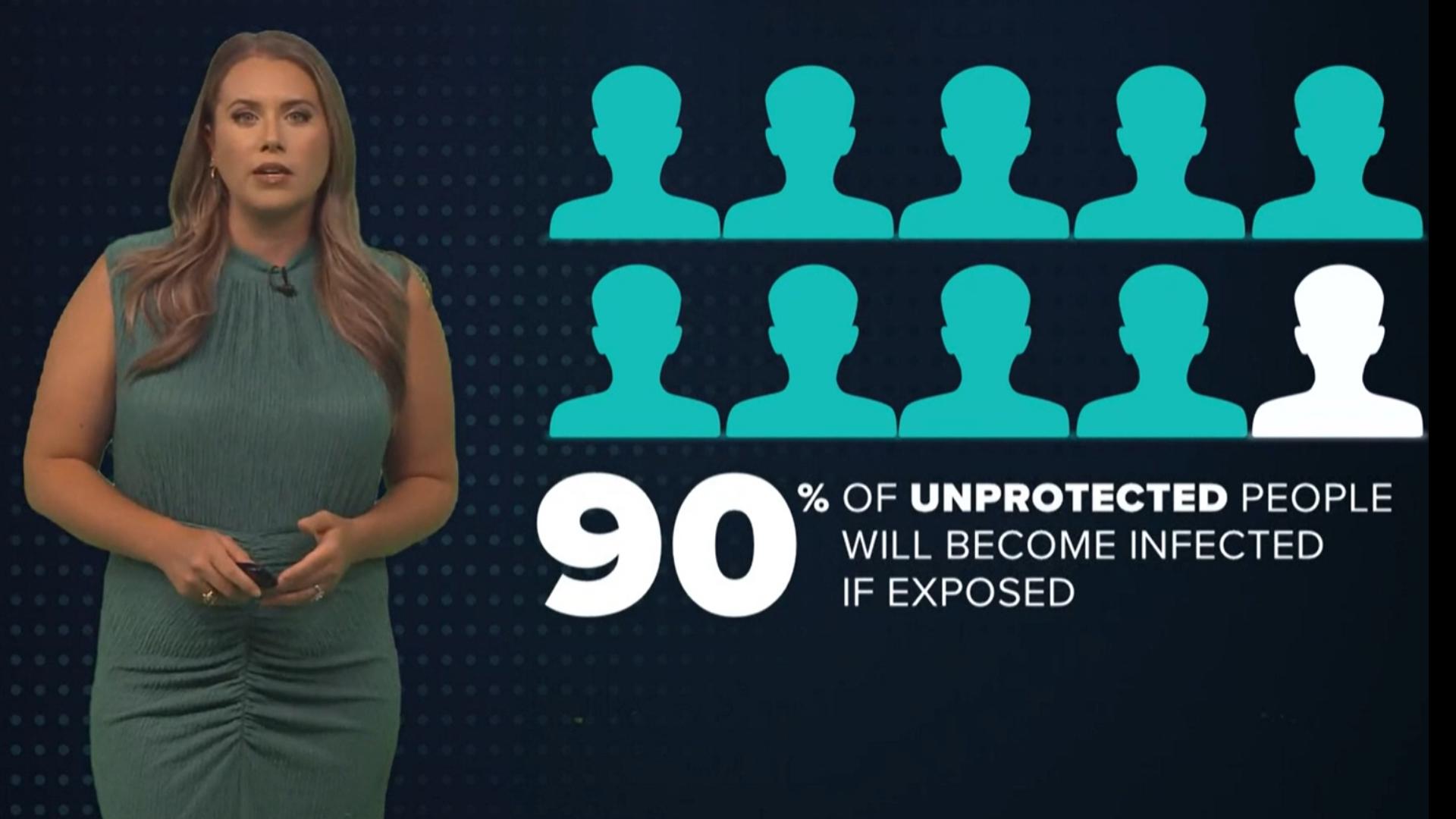A mother is on a mission to get a very important health message out to the medical community, parents, and especially young adults, and teens.
Her passion earned her a spot on a task force with the World Health Organization.
And that mission came out of a family tragedy.
Emily Stillman was 19, a sophomore in college in Michigan when one night she called home.
“She called me with a headache, and when she was taken to the hospital, she walked into the hospital with a backpack, a textbook, her phone, her computer. She wasn't going to die,” said Alicia Stillman, co-executive director of the American Society for Meningitis Prevention, and director of the Emily Stillman Foundation, who serves on the World Health Organization’s task force to ‘Defeat Meningitis by 2030.’
It was bacterial meningitis. Twenty hours later, Emily was gone.
“When I said goodbye to my daughter with tubes coming out of every part of her body, I promised her I would figure this out,” she remembers from 2013.
Alicia Stillman thought she had done everything right. She had gotten Emily a meningitis vaccine and booster, but there are five bacterial strains that can be deadly, and back then, there wasn't a vaccine for the type Emily contracted, meningitis B. But now there is.
“So, these tools are available to providers, to parents, to these patients, the young adults, and the adolescents, that I didn't have available to me,” Stillman emphasized.
“It's the behaviors. It's the sharing of the saliva that puts these children at risk, and that's why they really need to be vaccinated,” said Dr. Mary Beth Koslap-Petraco, a pediatric nurse practitioner and clinical assistant professor at Stony Brook University School of Nursing in Stony Brook, New York.
Experts say while babies can contract the bacteria and get a vaccine around three months of age, it is especially important for adolescents to get the vaccine. The recommendation is the first one at 11 and the booster at 15.
“They share forks and knives. They share food. They share joints. They share water bottles. They share chewing gum. The judgmental part of their brain doesn't really mature until they are about 22 years old. So, they do these things, and they don't think anything of it,” said Dr. Koslap-Petraco.
Bacterial meningitis can also raise the risk of having limbs amputated, like a young woman we featured in 2016. She got the infection when she was in college. So, make sure your vaccine protects against all five strains.
“These vaccines are so purified and are so safe. The biggest problem with getting the vaccine is having a sore arm afterward,” said Dr. Koslap-Petraco.
“And by sharing my story, by sharing my heartbreak, I believe that I could help save another life,” said Stillman.
For more information from the American Society for Meningitis Prevention, CLICK HERE.


